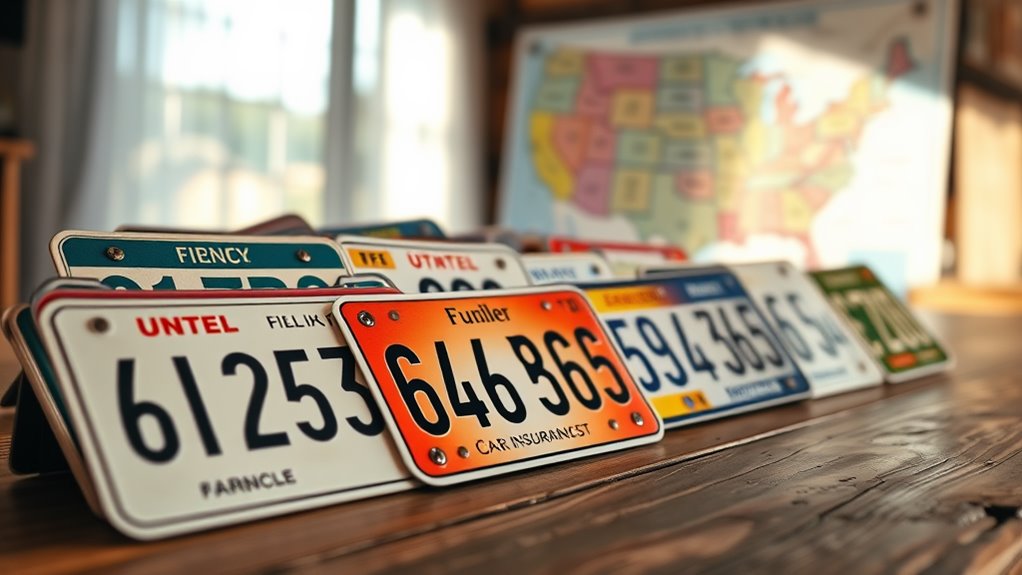You might believe that non-owner car insurance is a one-size-fits-all solution, but that's far from the truth. Each state has its own specific requirements that can greatly impact your coverage options. Understanding these nuances is essential, especially if you've got a history of driving violations. What do you need to know to stay compliant and protect yourself? Let's explore the varying regulations across states to clarify your obligations.
When you're driving someone else's vehicle, understanding non-owner car insurance requirements in your state becomes vital. Non-owner car insurance provides liability coverage if you're involved in an accident while driving a vehicle that isn't yours. This form of coverage typically includes Bodily Injury Liability and Property Damage Liability, and in some cases, may even encompass Medical Payments and Uninsured/Underinsured Motorist coverage. It's a practical option for individuals who don't own a vehicle but find themselves borrowing or renting cars occasionally.
Understanding non-owner car insurance is crucial for those driving vehicles they don't own, ensuring essential liability coverage in case of accidents.
Eligibility for non-owner insurance generally targets individuals who frequently drive but don't have a vehicle of their own. However, requirements can differ greatly from state to state. Most states mandate proof of liability insurance for non-owners, especially when it comes to reinstating driving privileges after certain offenses. In some instances, you may need to file SR-22 or FR-44 forms to demonstrate financial responsibility due to previous infractions. These forms are essential for compliance in jurisdictions that require such documentation, as they serve as proof of financial responsibility.
The cost of non-owner insurance is often less than traditional car insurance, making it an attractive choice for many. However, pricing is influenced by various factors including your driving history, location, and the specific coverage limits you choose. While major insurers like Geico and Progressive offer non-owner policies, the specifics of coverage can vary based on state regulations. Some states allow additional coverages to be included, though it's not universally standard. Lower premiums make non-owner insurance an appealing option compared to standard car insurance.
For those who frequently rent vehicles or regularly borrow cars, non-owner insurance can provide valuable liability protection. This coverage guarantees that if you're at fault in an accident, you're covered for damages you may cause to others. Additionally, maintaining a continuous insurance history helps prevent you from being categorized as a "high-risk" driver, which can impact future insurance premiums. Furthermore, if you need to prove financial responsibility after serious driving offenses, non-owner insurance can fulfill that requirement without necessitating vehicle ownership.
However, there are exemptions to take into account. If you're already covered under another household member's policy, non-owner insurance may not be necessary. If you infrequently drive, the owner's policy likely suffices. Similarly, if you consistently obtain coverage through rental agencies, you mightn't need a separate non-owner policy. Moreover, if you own a vehicle, non-owner insurance doesn't apply.
The availability of non-owner policies varies, with companies like Progressive and Allstate providing options for those in need. Some specialized firms focus exclusively on non-owner policies, expanding your choices. Many insurers facilitate online or phone quotes for non-owner coverage, streamlining the process for prospective customers.
It's important to verify that any insurance provider you evaluate is licensed in your state, as this guarantees compliance with local regulations.
Conclusion
Steering through non-owner car insurance requirements can be tricky, but understanding your state's specific regulations is essential. Did you know that nearly 15% of drivers in the U.S. are uninsured? This statistic underscores the importance of having proper coverage, especially if you occasionally drive someone else's vehicle. By ensuring you meet your state's liability insurance mandates, you not only protect yourself but also contribute to road safety. Always stay informed to maintain your driving privileges and avoid legal pitfalls.





